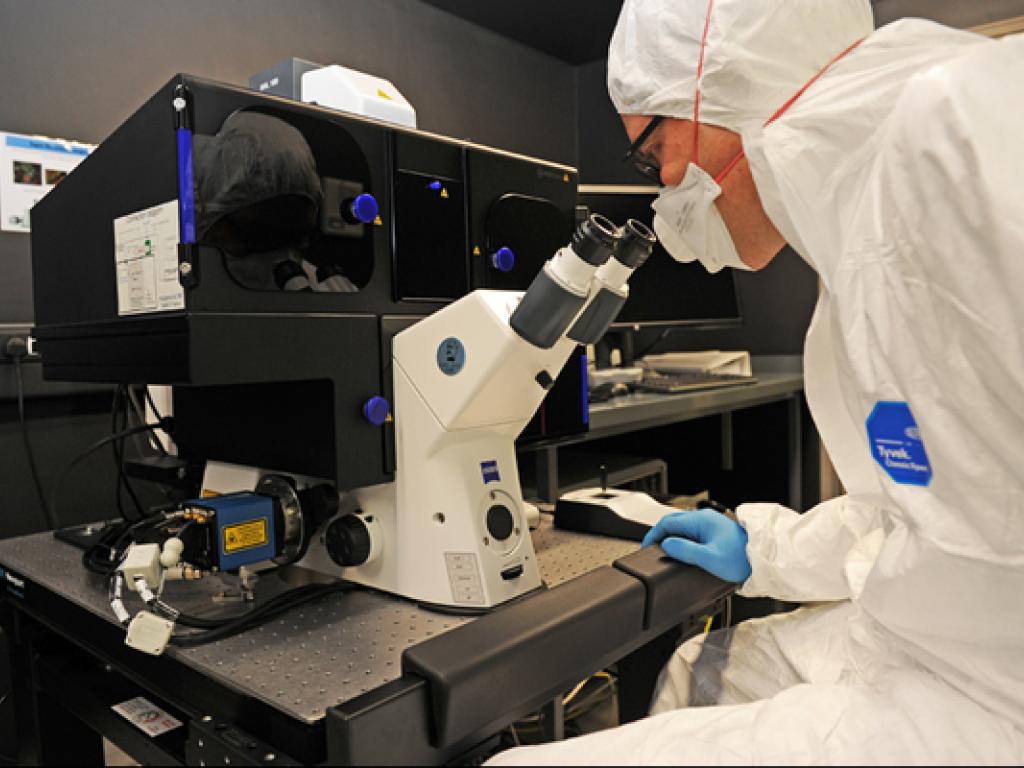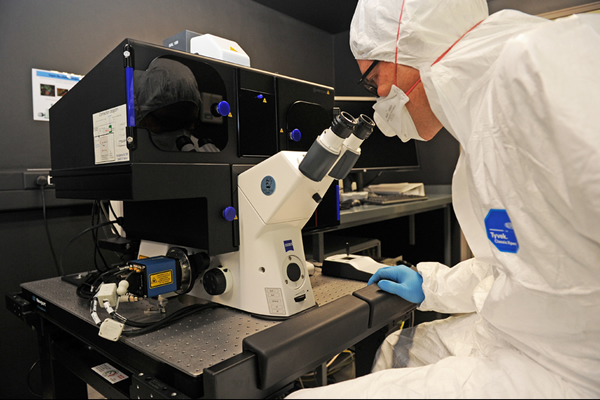New super-resolution microscopes for TB, HIV/AIDS research

Adapted from UCT News - 2 June 2017

The University of Cape Town's Faculty of Health Sciences officially launched two new state-of-the-art, multi-functional Carl Zeiss confocal and super-resolution microscopes in its Confocal and Light Microscope Imaging Facility. Based in the Department of Human Biology and also the Institute of Infectious Disease and Molecular Medicine (IDM), the new microscopy platform enables a combination of multi-photon-based deep tissue imaging, fast live-cell and super-resolution technologies that will provide researchers in the Biomedical Sciences at UCT and beyond with an array of micro-imaging techniques unique in South Africa.
The platform allows advanced light microscopy imaging and analysis of cells and tissues, and is relevant to a multitude of research disciplines including, but not limited to, cell, cancer and developmental biology, immunology and infectious diseases research, microbiology, neuroscience and plant biotechnology.
"This includes real-time imaging and experimental manipulation of individual, live cells in tissues or small model organisms - crucial to our understanding of how, for example, nerve cells function in health and disease," says Associate Professor Dirk Lang, Head of the UCT Confocal and Light Microscope Imaging Facility.
The new systems will enable the Confocal and Light Microscope Imaging Facility to offer routine imaging of non-infectious and infectious biological samples under appropriate biosafety level 2 (BSL2) and biosafety level 3 (BSL3) containment, respectively, within the UCT FHS campus. This will allow unprecedented access of UCT and other local researchers to super-resolution, real-time live cell and tissue imaging including a multitude of quantitative imaging and analysis techniques.
One of the microscopes, the new super-resolution Elyra S1, is the first instrument of its kind in a BSL3 laboratory in SA, allowing imaging of live pathogens implicated in infectious diseases of greatest relevance within an African context.
"Super-resolution technology, housed in a biosafety facility will provide a means of revealing previously inaccessible detail in biological samples that will help researchers in understanding key cellular processes relevant to health issues of national importance, including TB and HIV/AIDS," says Associate Professor Digby Warner, Associate Member of the IDM.
Funding was received from the National Equipment Programme of the National Research Foundation, the Wellcome Trust and the Wolfson Foundation, as well as UCT and the IDM.
A key component of the Wellcome Trust award is that it ensures 5-year funding for a technical post, thereby ensuring the funds are available to appoint someone with the expertise and skill to provide technical advice to users and oversight of the microscopes. The new equipment will also substantially contribute towards training and building urgently needed national capacity in advanced imaging techniques.
"In combination, these awards have enabled UCT to initiate a programme to develop a world-class imaging platform for infectious and non-infectious material, while ensuring that advanced technologies are maintained in biosafe core laboratories. Importantly, this process has highlighted the significant benefits inherent in driving multi-disciplinary funding applications within this environment, in this case involving the IDM, Department of Human Biology, and Faculty of Health Sciences,' agree Professors Lang and Warner.
